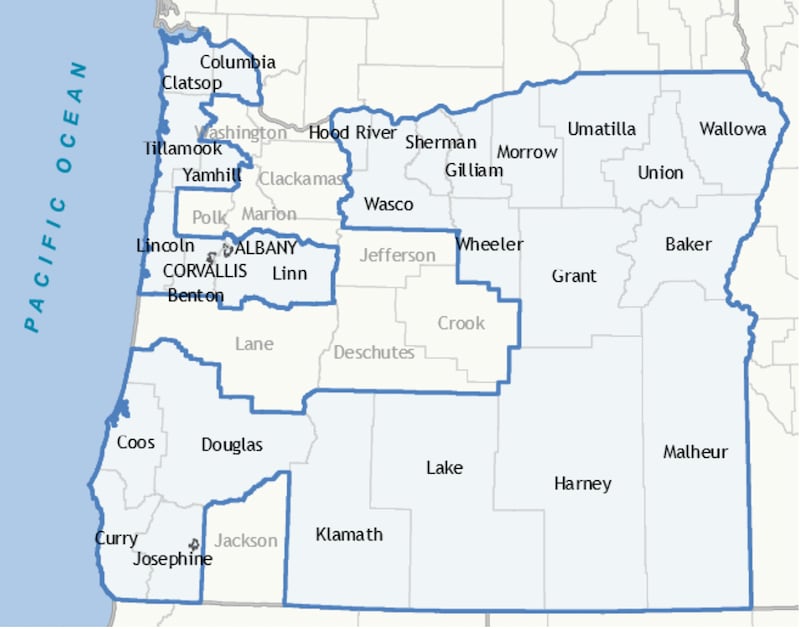On her first day in office, Gov. Tina Kotek attacked one of the state’s biggest challenges, declaring a state of emergency and earmarking $130 million in funding to alleviate homelessness. It’s a colossal undertaking: Oregon has the fourth-highest rate of unsheltered homelessness in the U.S. and the nation’s highest rate of unsheltered homelessness for families with children.
Her executive order, along with two others, marked decisive action on one of the most urgent challenges Oregon faces.
“People are currently becoming homeless faster than we have been able to rehouse people living outside,” Kotek said at the time. “We must do all we can to address and prevent homelessness so we can make progress toward not just ending homelessness for individual families, but for communities across the state.”
But the order and the $130 million funding it includes are aimed at just part of Oregon: those in six of the seven “continuums of care” that the federal Department of Housing and Urban Development groups together for purposes of funding and the provision of services. The seventh continuum of care includes 25 of the state’s rural counties.
Here’s what that looks like, with the 25 counties in the “Rural Continuum” outlined in bold:

Kotek set a bar for which areas would be eligible for the emergency funding: those whose homeless counts had increased by 50% or more between 2017 and 2022. (HUD requires each continuum area to conduct point-in-time counts every two years. Officials always note the counts are subjective and inaccurate, but they are the best data most governments have on homelessness.)
On Jan. 11, the day after Kotek’s order, the Legislature’s Coastal Caucus, led by state Rep. David Gomberg (D-Otis) pushed back.
The lawmakers in that caucus wrote to Kotek, urging her “to consider providing the same level of care and attention to the Rural Oregon Continuum as you have demonstrated to the rest of the State. Homelessness is not just an urban issue, but an Oregon issue.”
On Jan. 17, Kotek responded, saying that if she could legally do so, she would consider including the rural counties.
“My initial executive order was based on the best information available at the time, but as you noted, this data underrepresents the need,” she wrote. “A county governing body may request to be included in the emergency declaration by submitting a request to the Office of Emergency Management. I will review any such requests to make sure that I am remaining within the legal boundaries of my emergency powers while also responding to the urgent needs in communities across the state.”

